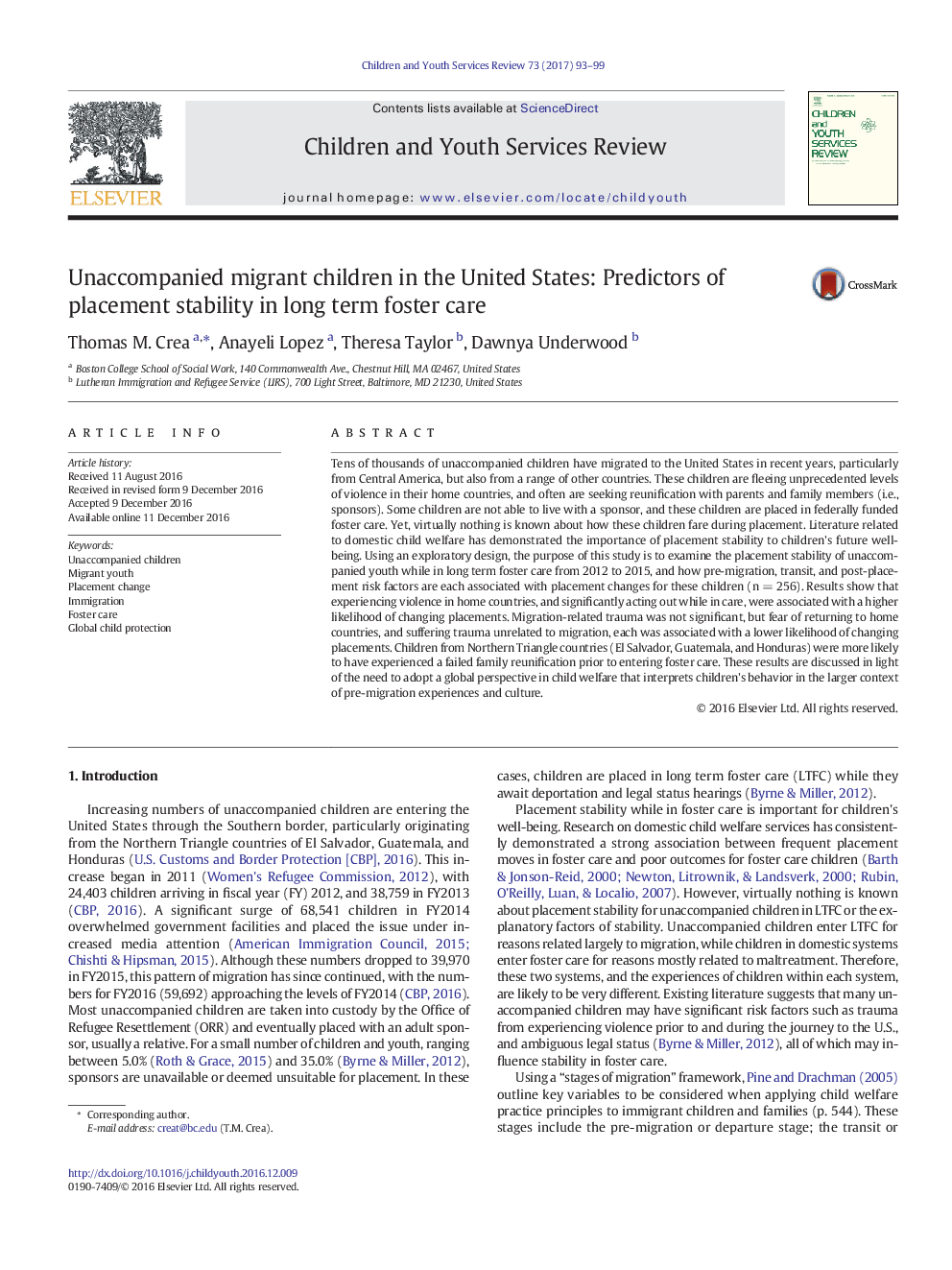ترجمه فارسی عنوان مقاله
کودکان مهاجر همراه با همسایه در ایالات متحده: پیش بینی عوامل ثبات در محیط زیست در مراقبت های طولانی مدت
عنوان انگلیسی
Unaccompanied migrant children in the United States: Predictors of placement stability in long term foster care
| کد مقاله | سال انتشار | تعداد صفحات مقاله انگلیسی |
|---|---|---|
| 131008 | 2017 | 7 صفحه PDF |
منبع

Publisher : Elsevier - Science Direct (الزویر - ساینس دایرکت)
Journal : Children and Youth Services Review, Volume 73, February 2017, Pages 93-99
ترجمه کلمات کلیدی
کودکان بی خانمان، جوانان مهاجر، تغییر محل مهاجرت، نگهداری فرزند، حفاظت از کودک جهانی،
کلمات کلیدی انگلیسی
Unaccompanied children; Migrant youth; Placement change; Immigration; Foster care; Global child protection;

